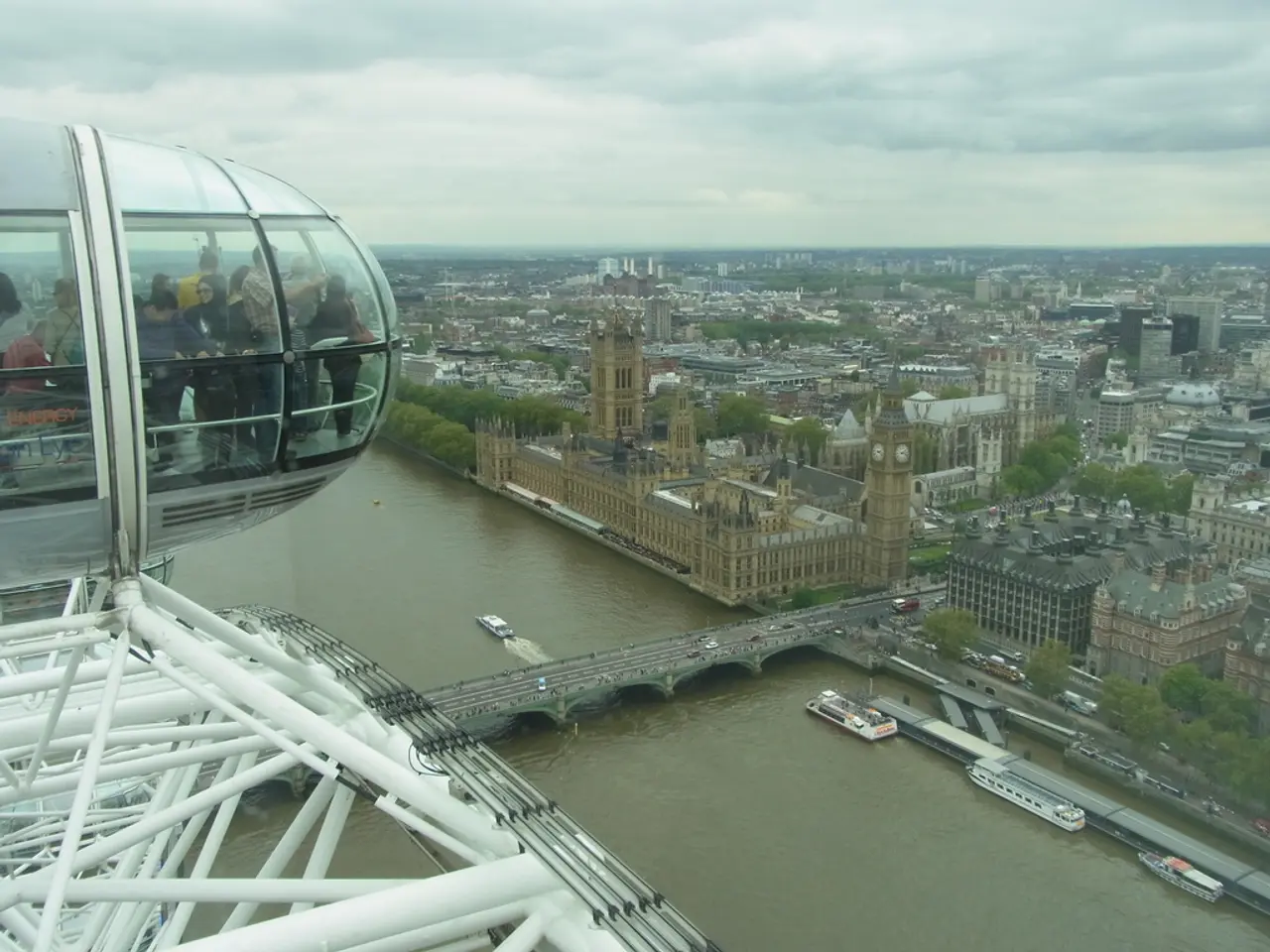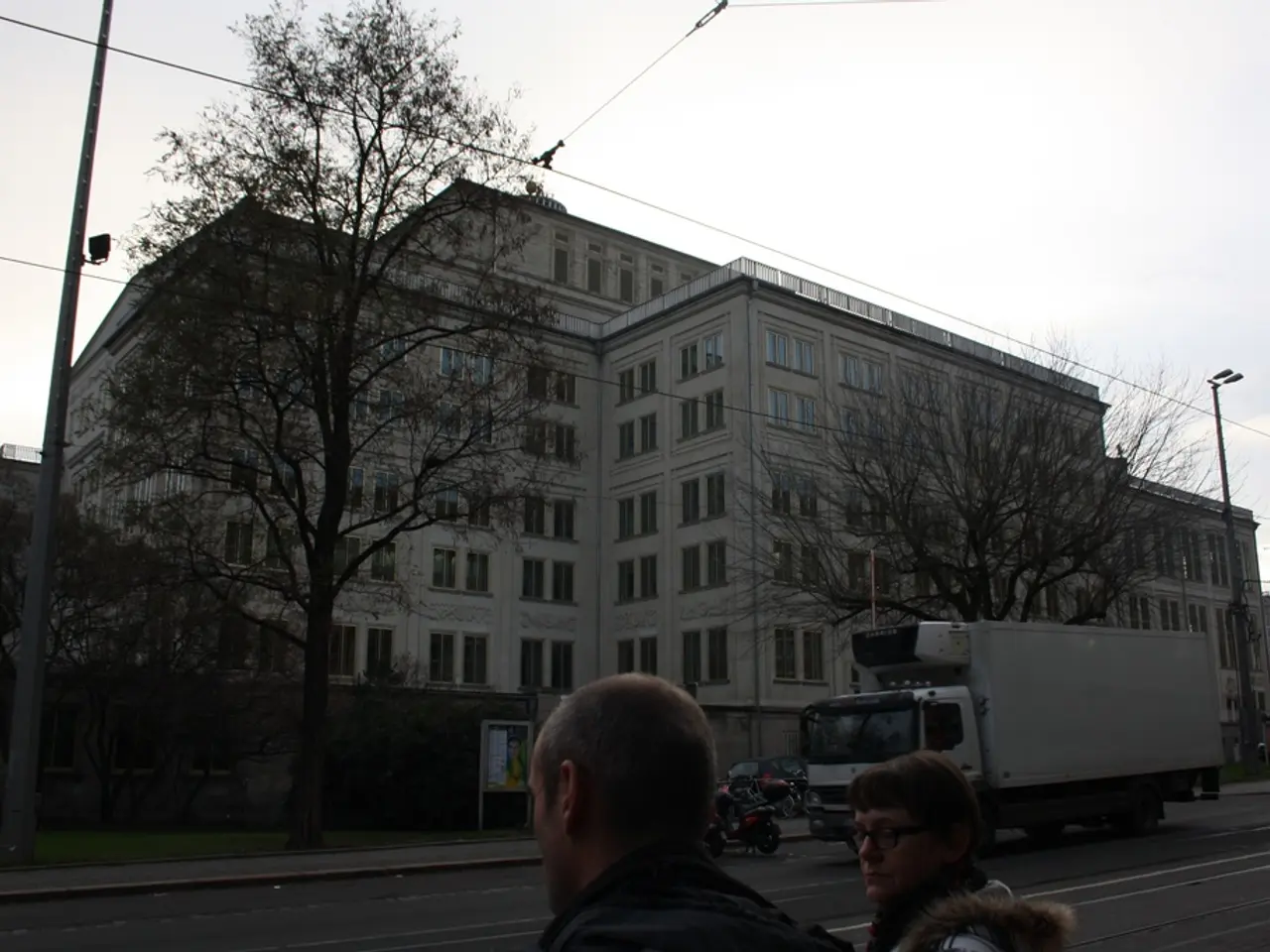Large debts and significant deficits feature in Klingbeil's subsequent budget plan
In an effort to address a staggering €172 billion budget gap for the years 2027 to 2029, the German government has outlined a comprehensive strategy for its federal budget 2026. The strategy aims to strike a balance between stimulating economic growth, fulfilling social commitments, and maintaining fiscal discipline.
One of the key proposals is the implementation of a "growth booster" initiative, a joint agreement between the federal and state governments. This initiative includes tax relief for companies, intended to stimulate economic growth and compensate for tax shortfalls at the state and local levels. However, this measure has also been cited as a contributor to the widening budget gap [2][4].
Another significant aspect of the strategy is the advancement of the maternal pension scheme to January 1, 2027. While this move increases fiscal pressure, it is part of the government's social policy commitments [4].
The government is also relying on an economic recovery to increase tax revenues. Germany has faced three consecutive years without economic growth, but the government expects better growth to help reduce deficits by improving fiscal inflows [4].
To control spending and manage rising costs, including increasing debt service expenses, the government plans to enact reforms to streamline planning processes and emphasize budgetary prudence across ministries [4].
A reform of the social security systems is expected to play a crucial role in consolidating the budget. The federal government also plans savings in development aid for the 2026 budget and has agreed on measures to scrutinize spending [4].
Savings are also expected from a reform of the citizens' income, with the aim of bringing more citizens' income recipients into the labor market. The coalition agreement states that the income tax for small and medium incomes should be reduced towards the middle of the legislative period, a move that would cost many billions [4].
However, the feasibility of financing projects announced in the coalition agreement is uncertain. There is likely to be a controversial debate within the federal government over a general reform of the debt brake in the Basic Law. Dietmar Bartsch of The Left has warned that if Klingbeil and Chancellor Friedrich Merz persist with their plans, the core meltdown of the social state is threatened [4].
The coalition has also agreed on a reduction in electricity tax for all companies and private households, but this would require financial room for maneuver. Savings are also expected from the heating subsidy for the building sector from the Climate and Transformation Fund [4].
In summary, the government's strategy for the 2026-2029 federal budget aims to navigate the challenges of addressing a significant budget gap while maintaining a balance between stimulating growth, fulfilling social commitments, and demonstrating fiscal discipline. The strategy relies significantly on an expected economic rebound to improve public finances [2][4].
The government plans to seek financial assistance from the industry sector, as part of their strategy to address the budget gap, by offering incentives such as tax relief for business. This move is aimed at boosting economic growth and generating additional tax revenues.
The reform of the social security systems and the reduction in income tax for small and medium incomes, as stated in the coalition agreement, are anticipated to have significant impacts on the finance sector, potentially costing many billions and requiring careful management to maintain fiscal discipline.




